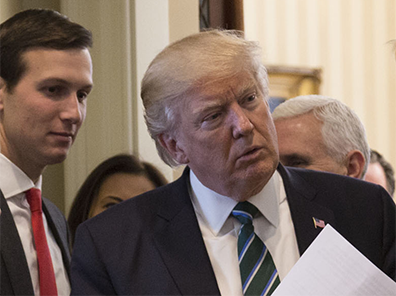
What has been released so far of the Kushner-Trump immigration plan is just an outline. There is as yet no legislation and, consequently, no details.
I know this is wishful thinking, but hopefully the Kushner plan can spark some debate. To that end, I raise three issues about the role of "skill" in the immigration system for consideration.
The first issue is the question, "What is skilled immigration?" It is laudable to seek immigrants to have skills, but what does that mean? Much legislation in Washington equates "skill" with the lobbyist-speak acronym "STEM" (science, technology, engineering, and math). However, a rational immigration system would view "skill" much in different terms.
Welding, masonry, and carpentry are all skilled occupations. America needs master masons more than it needs mediocre computer programmers. The system should consider skilled to be broader than "STEM" but not so broadly that "skill" becomes meaningless.
The second issue is deals with opportunity. The value of a potential immigrant's education to the immigration system should depend upon where the immigrant comes from. Consider two examples:
Example 1: Let us assume that we are processing the immigration applications from two potential immigrants from a country like Canada (that has opportunities for upward mobility and a relatively small divide between the haves and have nots) or some similar country in this regard. Let us also assume that the immigration system will only allow one of them to immigrate. We can only pick one of the two.
In this example, having a higher level of education would be good indicator to determine who would be the better immigrant because education is widely available.
Example 2: Let us assume for the moment that we have two potential immigrants from North Korea (or some other country with a great divide between the haves and have nots) and, again, the immigration system can only accept one.
When dealing with countries where access to (higher) education is limited to a small ruling elite, the applicant with a lower level of education may be more likely to be the better immigrant. America should not have an immigration system that imports the oppressors of the people or their children.
The third issue also deals with opportunity. Business interests claim the country needs labor for low-skilled jobs. We are told that America needs foreign workers to pick our crops and clean our toilets and to perform any other job Americans will not do.
If the immigration system is going to import foreign workers to do dirty jobs, it is only fair that aliens who do dirty jobs should have a chance at immigration (and not just work visas) as well.
